
Debate Continues After Iran Puts Down Protests
The Iranian Revolutionary Guard Corps has arrested more than 8,000 people and murdered at least 50 in its harsh response to the political uprising that began in late December, reports the Europe-based National Council of Resistance of Iran (NCRI).
The NCRI says the protests have spread to 130 cities. Dissidents complain about economic conditions such as high unemployment and inflation, and criticize the government for prioritizing campaigns in Syria and Iraq over the needs of its own citizens.
President Trump and other members of his administration have spoken out in support of the protestors.
Earlier this month, the Treasury Department announced new sanctions against judiciary chief Sadeq Amoli Larijani and other Iranian leaders known to endorse cruel punishments such as torture, denial of medical care, and amputation.
“As the head of the judiciary for the past nine years, Larijani is a key official in the regime’s suppressive apparatus, who has played a direct role in the execution of thousands of people, in the crackdown and arrest of dissidents, as well as in censorship and repression,” says NCRI spokesman Shahin Gobadi, adding that the regime’s oil exports must be subjected to sanctions.
Over 400 detainees were released from prison on Sunday, but Amnesty International estimates there are still “hundreds” locked up and at risk of torture. Most of the dissidents are younger than age 25 – an age group which faces an unemployment rate over 24%.
Trump is one of few leaders to speak up about the plight of the Iranian citizens. Leaders in other countries are turning a blind eye in fear of disrupting the 2015 nuclear deal with Iran, explains Middle East analyst Jim Phillips. “Many European and Asian allies seek to preserve the nuclear deal with Iran in order to maintain a business-as-usual relationship with the Islamist dictatorship in Tehran. They are fearful that if they admit that the regime represses its own people, then they will be asked to do something about it that could diminish trade with Iran.”
Unlike the last period of unrest, when Iranians protested the results of the 2009 Presidential election, this year’s protests are accompanied by political debate.
“Both main factions in Iranian politics claimed to see something legitimate in demonstrators’ demands – even if they disagree about what it is,” reports Bloomberg. “This year’s protests were leaderless, and their demands were so diverse…that there was something for everyone.”
Demonstrators in 2009 were called “seditionists,” and talk of the unrest was confined to banned opposition websites. Today, causes and consequences are discussed openly on social media, in newspapers, and on state-run airwaves.
The uprising is unlikely to cause regime change, but it could lead to changes in the country’s foreign and regional policy.
—
As I wrote in a previous article, the unique situation in Iran could provide Trump with a chance to increase leverage on the country.
“[We are] supporting the brave Iranian citizens who are demanding change from a corrupt regime that wastes the Iranian people’s money on weapons systems at home and terrorism abroad,” said Trump in a January 12th statement detailing the changes he wants to make to the nuclear deal.
“We are calling on all nations to lend similar support to the Iranian people, who are suffering under a regime that is stifling basic freedoms and denying its citizens the opportunity to build better lives for their families – an opportunity that is every human being’s God-given right.”
Iran is taking advantage of crises in Iraq and Syria to increase its dominance in the Middle East. As an ally of Syrian President Bashar al-Assad, Iran played a central role in the suppression of rebels in Aleppo and is building military bases in Syria in anticipation of bolstering Assad’s post-civil-war rule. Iran also finances Hezbollah, a terrorist group in Lebanon.



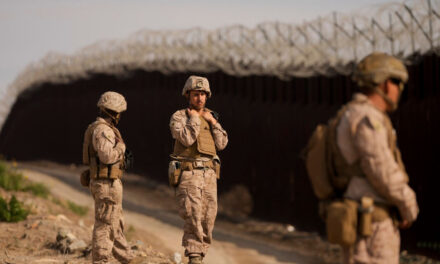











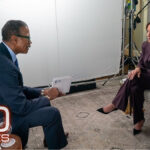
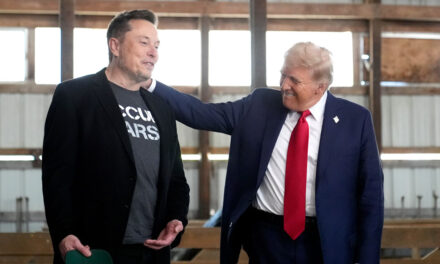
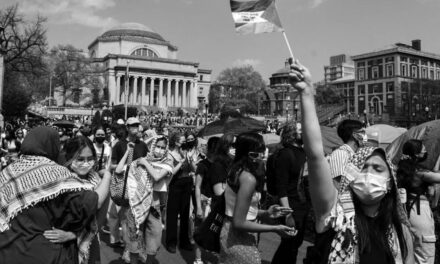



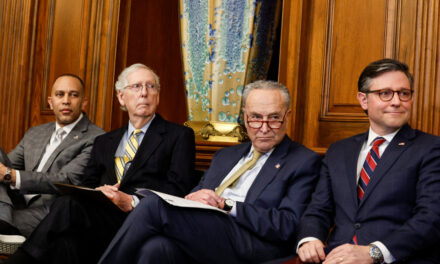



Tom, try again, you have a misread. I did not call your Felon Sex Abuser King, The Dumpster. I save…
That’s president Trump Not dumpster you asshole. You get pissed off when democrat asswipes gets called out.
Another chapter of True Republican Crime to balance what we found in The Dumpster where only one side of the…
Doubtless the local media suppressed the story during the campaign.
Part 12, black history month How about we look at the facts. The "author" has yet to tell us 1.…